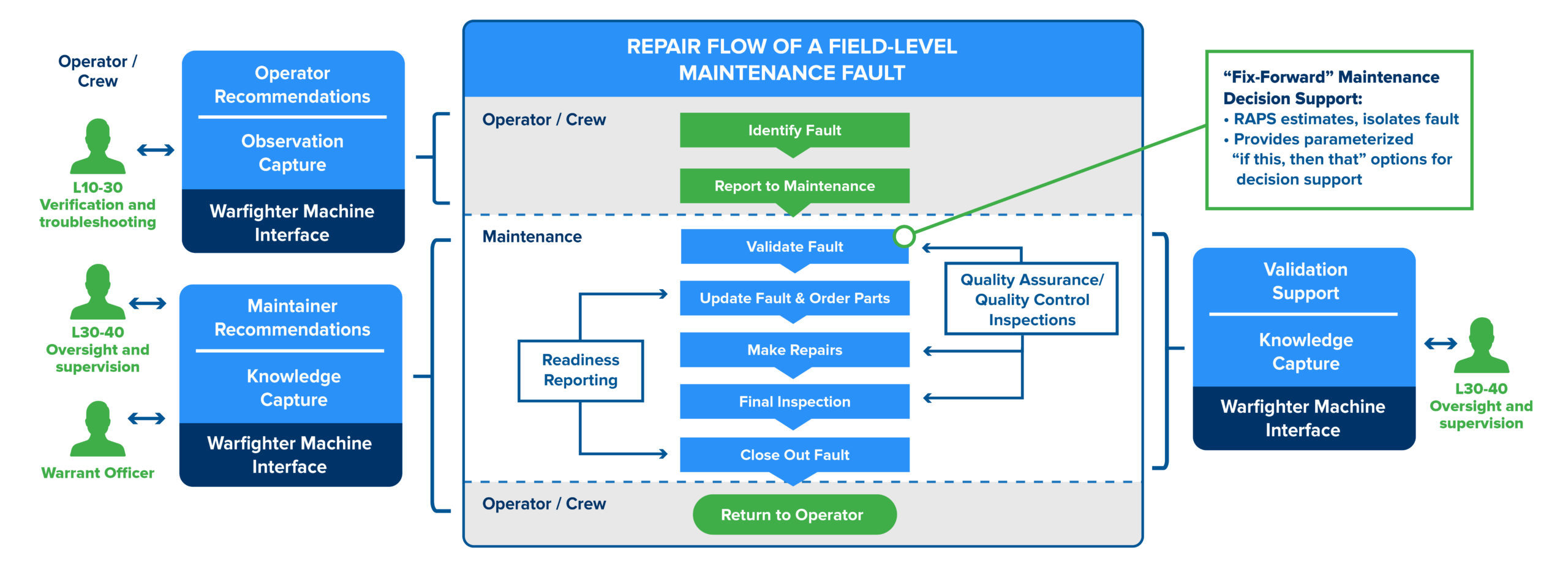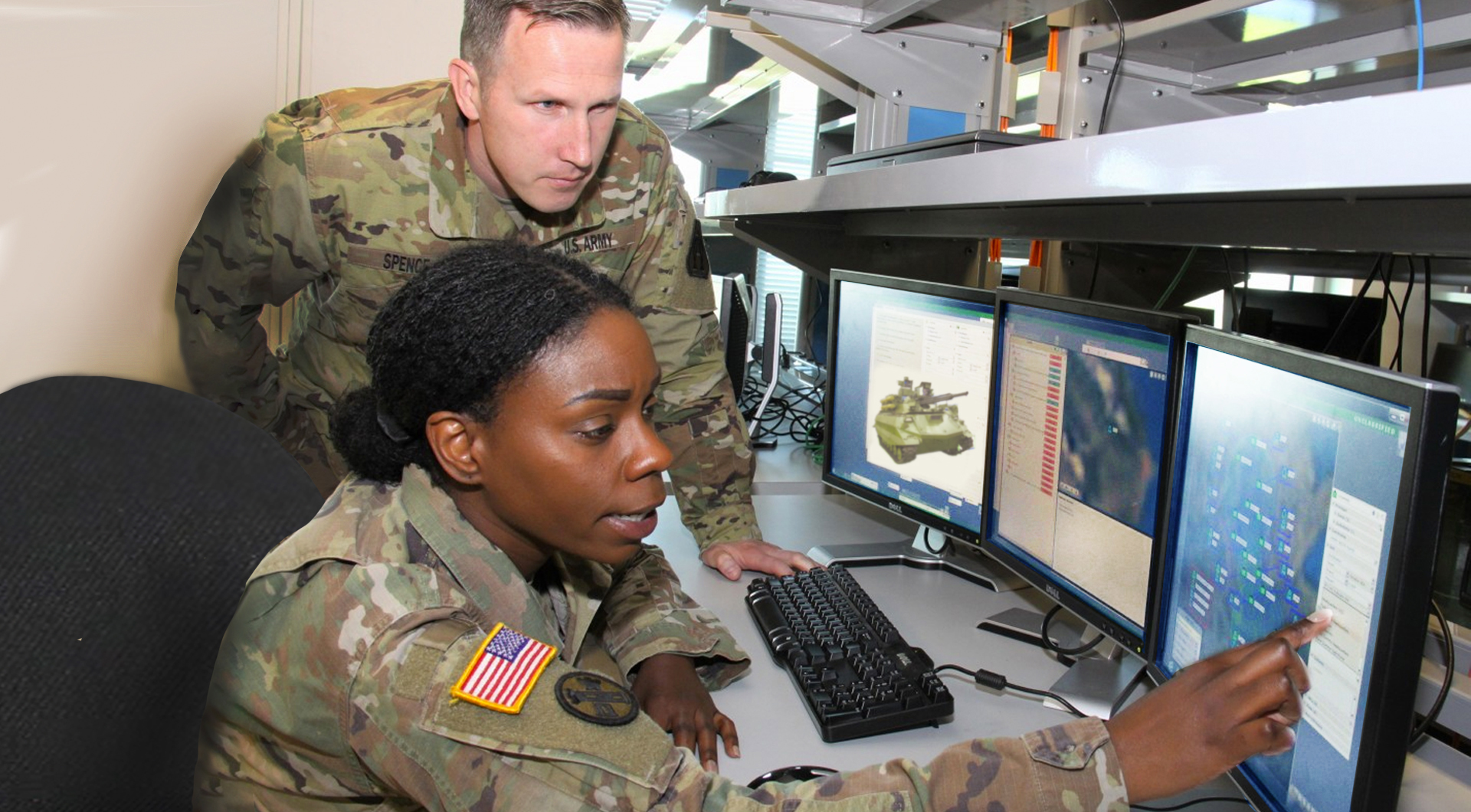Charles River Analytics is applying the latest in artificial intelligence and machine learning to ensure mission readiness of the US Army’s robotic combat vehicles.
Robotic combat vehicles, or RCVs, can reduce casualties and increase combat effectiveness in Army missions. But the same feature that reduces casualties—RCVs have no operators or crew onboard—makes RCV maintenance a challenge.
Charles River is meeting this challenge with RAPS, a Real-time Assessment and Predictive Status maintenance system for RCVs. RAPS can monitor an RCV and make real-time predictions about the health and status of its components and subsystems. These predictions will facilitate timely maintenance, logistics planning, and command decisions.
“By optimizing maintenance and logistics, RAPS will reduce the cost of RCV operations and improve the US Army’s mission readiness,” said Kenny Lu, Scientist at Charles River Analytics and Principal Investigator of the RAPS effort. “To achieve top readiness, we are designing RAPS to be explainable, adaptable, modular, and accessible.”
RAPS will achieve explainability by using probabilistic programming to combine data-driven and knowledge-driven reasoning and provide insight into its predictions. This insight will help users understand how RAPS makes reliable predictions about RCV health status and required maintenance.
To accomplish adaptability, RAPS will use probabilistic models that will continue to provide predictions and assessments even if sensors on RCVs become degraded or unavailable.
The modularity conferred by the system’s probabilistic models will make it easy to maintain and be reusable for constructing new prediction models, which will reduce the time and costs of maintaining RCV mission readiness.
RAPS will accomplish accessibility through its intuitive human-machine interface, which will allow users across all levels of operation to independently update and sustain the system. RAPS will also enable users to integrate their domain knowledge into the system to yield better predictions.

The development of RAPS draws on Charles River’s extensive experience in robotics and autonomy and innovation in the fields of probabilistic programming and explainable AI. RAPS also gives us an opportunity to team up with small businesses with expertise in other domains, including sensors and custom hardware, to create a collaborative solution for the Army to modularize their approach to RCV sustainment.
The designs developed under RAPS can also be applied to the fields of vehicle health monitoring and predictive health maintenance.

